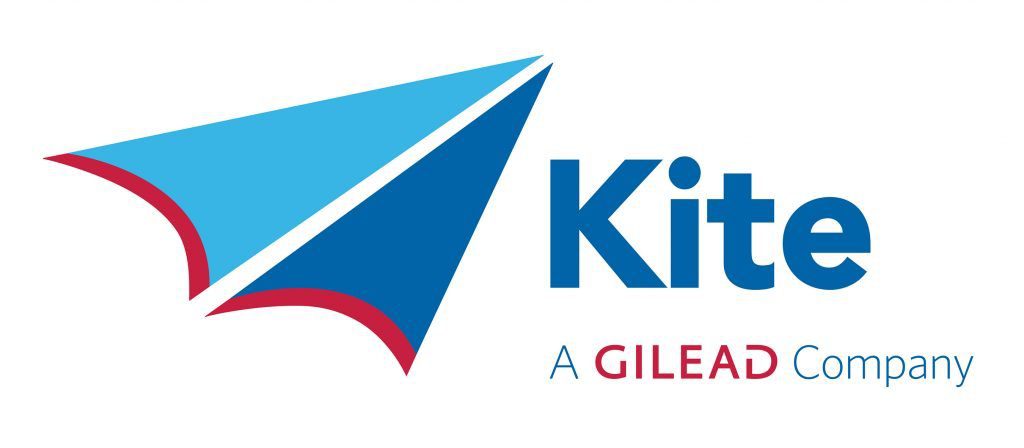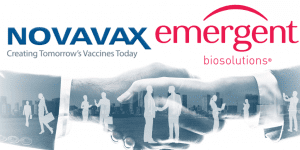
Five Companies That Are Changing the Landscape for Cell and Gene Therapy
From Development to Commercial Stage, These Five Companies Showcase Why Maryland is a Dominant Cell and Gene Therapy Hub
Gene therapies represent some of the most promising advancements in science and human health in recent history. The BioHealth Capital Region, and Maryland in particular, is rapidly becoming a hub for companies in this field. With the NIH and the National Cancer Institute at the nucleus, some of the most advanced scientific research and technology development in the field is happening in a short 30-mile radius around Montgomery County, Maryland.
Johns Hopkins and the University of Maryland are not only leading research centers but they are spinning out multiple companies each year to move their discoveries to the bedside. Dozens of clinical stage gene therapy companies are advancing their research and engineering potential cures for several different diseases from HIV to cancer.
Two of Maryland’s gene therapy companies are amongst the Top 10 players in the CAR T-cell therapy development field, and two of the four current FDA approved gene therapies, Yescarta and ZOLGENSMA, are also tied to Maryland companies. This commercial success will secure more capital for these companies to fuel their pipelines and allow the region to further advance new technologies that can impact even more patients.

Gene therapy is the therapeutic delivery of a gene into a patient’s cells to treat disease. What makes this therapy so promising is the potential it has to address the underlying cause of disease, providing single-dose therapy with long-lasting results.
These five gene therapy companies in Maryland are creating innovative solutions to combat disease and cancers and bring new hope to patients in dire need.

Kite Pharma
Yescarta, Kite Pharma’s CAR T cell therapy was the second gene therapy approved by the FDA for specific types of non-Hodgkin lymphoma (NHL). Upon its approval, FDA Commissioner Scott Gottlieb, M.D. stated “Today marks another milestone in the development of a whole new scientific paradigm for the treatment of serious diseases. In just several decades, gene therapy has gone from being a promising concept to a practical solution to deadly and largely un-treatable forms of cancer.”
Late last month Kite Pharma, a Gilead company, announced its plans to open a new manufacturing facility in Frederick County, creating an abundance of job opportunities in Maryland. This new facility will allow Kite to significantly expand its ability to manufacture next-gen oncology treatments, including Yescarta and its investigational therapies. Their novel technology platforms has positioned Kite as a leader in engineered T cell therapy for hematological and solid tumor cancers. Their mission is to cure cancer by harnessing the power of the human immune system to create targeted and controlled T cell immunotherapies.
T cells are a main component of the body’s mechanism to fight cancer, but it is not always successful in recognizing the cancer as a foriegn invader. Kite uses their autologous cell therapy technology to collect the patient’s own white blood cells to isolate and activate them. They are then genetically engineered to include a Chimeric Antigen Receptor (CAR) or a T Cell Receptor (TCR), depending on the type of cancer the patient has. Once these cells are equipped to find and eliminate the cancer, they are replicated and infused back into the same patient. These genetically modified cells will have the ability to break down the cancer cell’s defense mechanisms and eliminate them. Kite Pharma is currently in collaboration with many big names in pharma to bring the next generation of gene therapies to market.

REGENXBIO
Late last month, REGENEXBIO announced their first FDA approval for a gene therapy based on its proprietary NAV® Technology Platform. ZOLGENSMA was approved by the FDA as a one-time infusion for pediatric patients who are less than two years of age with spinal muscular atrophy (SMA), a debilitating and potentially deadly disease. ZOLGENSMA is a novel therapy manufactured by AveXis, Inc., a Novartis company, that utilizes the NAV Technology Platform to correct an underlying genetic defect with one-time treatment by delivering a functional copy of the SMN1 gene. With this new commercial revenue stream, REGENXBIO may be one of only three companies that are making a profit from an approved gene therapy product next year.
In early May they announced plans to construct a manufacturing production facility, to be located at their headquarters in Rockville, Maryland. This new cGMP facility, expected to be operational in 2021, will allow for the production of NAV Technology-based vectors at commercial scales up to 2,000 liters using REGENXBIO’s platform suspension cell culture process.
This clinical stage-biotechnology company has been prominently noted as leaders in the AAV technology industry as they seek to improve patient lives through gene therapy. They are currently working to develop therapies for the treatment of retinal, metabolic, and neurodegenerative diseases. Their NAV Technology platform uses a novel gene delivery platform through Adeno Associated Virus (AAV) vectors. These are virus vectors that cannot replicate and are not known to cause disease, making them a prime candidate for delivery vehicles to human cells.

Development of the NAV platform has involved identifying the next generation of AAV vectors to overcome the earlier limitations of the technology. The current manufacturing method has been simplified from earlier generations of AAV vectors, and is now less likely to trigger an immune response in the recipient. Advancements in the technology platform has given the vectors the ability to deliver multiple types of genetic material giving it a broad application across multiple disease states. REGENEXBIO has also found a way to improve gene expression over earlier generation vectors, enabling longer lasting treatment for the patient, in a smaller dose.

Autolus
Autolus is a gene therapy company developing immunotherapies for solid tumors and hematological cancers. After an IPO in 2018 they announced plans to build their HQ and US commercial manufacturing facility in Rockville, MD creating 170 jobs for the Maryland workforce.
Their robust clinical pipeline is among the top five in the CAR T Cell Therapy field, which includes four product candidates in five hematological indications, and one in solid tumors. Their modular programming approach enables a rapid cycle of innovation and has helped them also to maintain an industry-leading development pipeline that includes three next-generation versions of lead programs.
Their immunotherapy technology involves engineered T cells that are reprogrammed with a Chimeric Antigen Receptor (CAR) or a T Cell Receptor (TCR) to recognize and kill the tumor cells. They have developed controlled and highly active CAR T cell therapies using viral vectors and also have a proprietary semi-automated cell manufacturing process that is fully enclosed, economical and scalable which is currently being used in their clinical stage programs.
Their T cell therapy technology has the ability to adapt each therapy to address the specific cancer the patient has. There are also implications to improve therapies that are already available, for example taking an in-patient therapy and making it practical for outpatient treatment to improve the quality of care for the patient. This capability gives Autolus a competitive edge in the gene therapy industry.

American Gene Technologies
Late last month, American Gene Technologies (AGT) was granted a second patent for its HIV Cure Program. This patent is one more addition to the wide portfolio of patents that AGT has collected over the past 17 months, further protecting its novel technology platforms to treat infectious diseases, cancers, and monogenic disorders.
American Gene Technologies is a pre-clinical gene therapy company that is using a novel gene delivery platform to transform the way diseases are treated. It is using lentiviral vector technology to integrate genes into the patient cells, the nature of the vector allows it to be easily adapted to different diseases. This drug development platform will change the research timeline for new therapies from years to weeks, saving time and money and will ultimately reduce the cost of healthcare.
Its HIV Cure Technology uses modified T-Cells made from a person’s own cells to disable the disease and build immunity to the virus. The goal of the therapy is to remove infected cells from the body and reduce or eliminate the need for lifelong antiretroviral treatment. AGT is expecting to begin clinical trials for its novel treatment in 2019.
In addition to HIV/AIDS, they are also targeting a cure for liver cancer and Phenylketonuria (PKU), both of which are in the pre-clinical phase of development. Its liver cancer program has been granted 5 USPTO patents to protect its lead asset in immunotherapy for cancer. PKU is a rare inherited disease that causes the amino acid phenylalanine to build up in the body, which can lead to serious health problems. This drug development program has been granted FDA Orphan Drug Designation status.

Arcellx
Arcellx is an early stage immuno-oncology company working to develop CAR T-Cell therapy to treat cancer and a broad spectrum of human disease. This local Montgomery County company based in the Germantown Innovation Center has just raised $27M in Series A funding from several high caliber investment firms that include NEA, Novo, Takeda Ventures and SR One. Arcellx is lead by founder David Hilbert, PhD and his highly experienced leadership team. Dr. Hilbert has extensive experience in navigating the strategic and operational challenges that startup companies face in the early stages of drug development.
Their development pipeline includes two lead products in the IND-enabling stage so they are close to becoming a clinical stage company. Their proprietary Antigen- Receptor Complex T cell (ARC-T) platform technology is initially targeting cancer therapies, but has application across a broad spectrum of human disease. With a unique platform technology that is designed to enhance the safety and efficacy of conventional CAR-T therapies, Arcellx is well positioned for collaboration and licensing opportunities that can provide them with substantial funding to help advance their technology and pipeline.
Their vision is to provide cancer patients with adaptive gene cell therapies that are readily silenced, activated, and reprogrammed in order to combat the complexity of human disease. Their technology platform aims to achieve improved efficacy through the reprogramming of the immune system’s tumor-targeting receptors to address both newly diagnosed and relapsed cancers. Arcellx’s technology will extend to solid tumors as well as autoimmune indications.
The Arcellx leadership team is equally as impressive as their technology. The combination of which has attracted the top investment firms to get behind them which indicates that Arcellx has something special that could create a new paradigm that revolutionizes cell therapy.
These companies are working around the clock to create innovative technologies to change the way cancer and diseases are treated. There is intense competition in the CAR T-cell therapy pipeline with more than 90 CAR T-cell therapies being investigated in over 90 clinical trials worldwide, many of which are happening right here in Maryland.
- About the Author
- Latest Posts
Over the past 11 years, Chris has grown BioBuzz into a respected brand that is recognized for its community building, networking events and news stories about the local biotech industry. In addition, he runs a Recruiting and Marketing Agency that helps companies attract top talent through a blended model that combines employer branding and marketing services together with a high powered recruiting solution.





